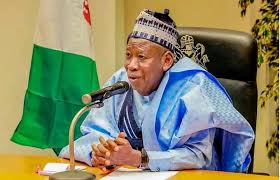Former Ogun State Governor, Olusegun Osoba, has shed light on why outgoing presidents and governors often do not support their deputies’ bids to succeed them. Osoba cites distrust and suspicion as primary reasons.
Speaking at the 3rd Annual Conference of the Forum of Former Deputy Governors of Nigeria in Abuja, the elder statesman emphasized that this issue is not unique to Nigeria but is a global phenomenon.
“It is most unfortunate. It is not just in Africa. It happens all over the world,” Osoba remarked, referencing the strained relationship between former U.S. President Bill Clinton and his vice president, Al Gore.
READ ALSO: Just In: FG Withdraws Money Laundering Charges Against Binance Executive Gambaryan
He noted that Clinton, fearing his presence could hurt Gore’s campaign, did not fully support him during his 2000 presidential bid.
Osoba further acknowledged that while it is rare for deputies to succeed their leaders, there is hope for change in Nigeria.
“The array of young and passionate leaders we see at this conference gives us confidence that one day, one of them will emerge as the president of this country,” he said.
The former governor also voiced concern over the rising trend of governors orchestrating the impeachment of their deputies.
READ ALSO: Kano Assembly Insists On Holding LG Elections Despite Court Ruling
When asked about the possibility of constitutional amendments to protect deputies from being undermined by their superiors, Osoba expressed skepticism.
He explained that governors often have significant influence over state legislatures, which makes it easy for them to initiate impeachment proceedings against their deputies.
“There is little anybody can do about it. If the State House of Assembly is friendly with the governor, he can attempt anything, including impeaching his deputy,” he said.
READ ALSO: ASUP Mobilises For Strike As Ultimatum Expires
Osoba stressed that the solution lies in building stronger relationships between leaders and their deputies, rather than relying solely on legal reforms. “It is not by law but by relationship. Cooperation between leaders is crucial,” he added.
In his address, Dr. Abdullahi Ganduje also weighed in on the complexities of the deputy role. He compared it to theological debates, saying, “Even in theology, God has no deputy because of its controversial nature.
A leader does not determine his continuity in office. If a leader falls sick or dies, someone has to take over.”
Ganduje hinted at the possibility of future constitutional amendments to address the challenges faced by deputy governors.
“Maybe certain paragraphs can be included in favor of deputy governors,” he suggested.
The conference, themed “Strategic Solutions for Good Governance, Food Security, and Sustainable Growth in Nigeria,” brought together former deputy governors and political leaders to discuss governance and leadership challenges in the country.

